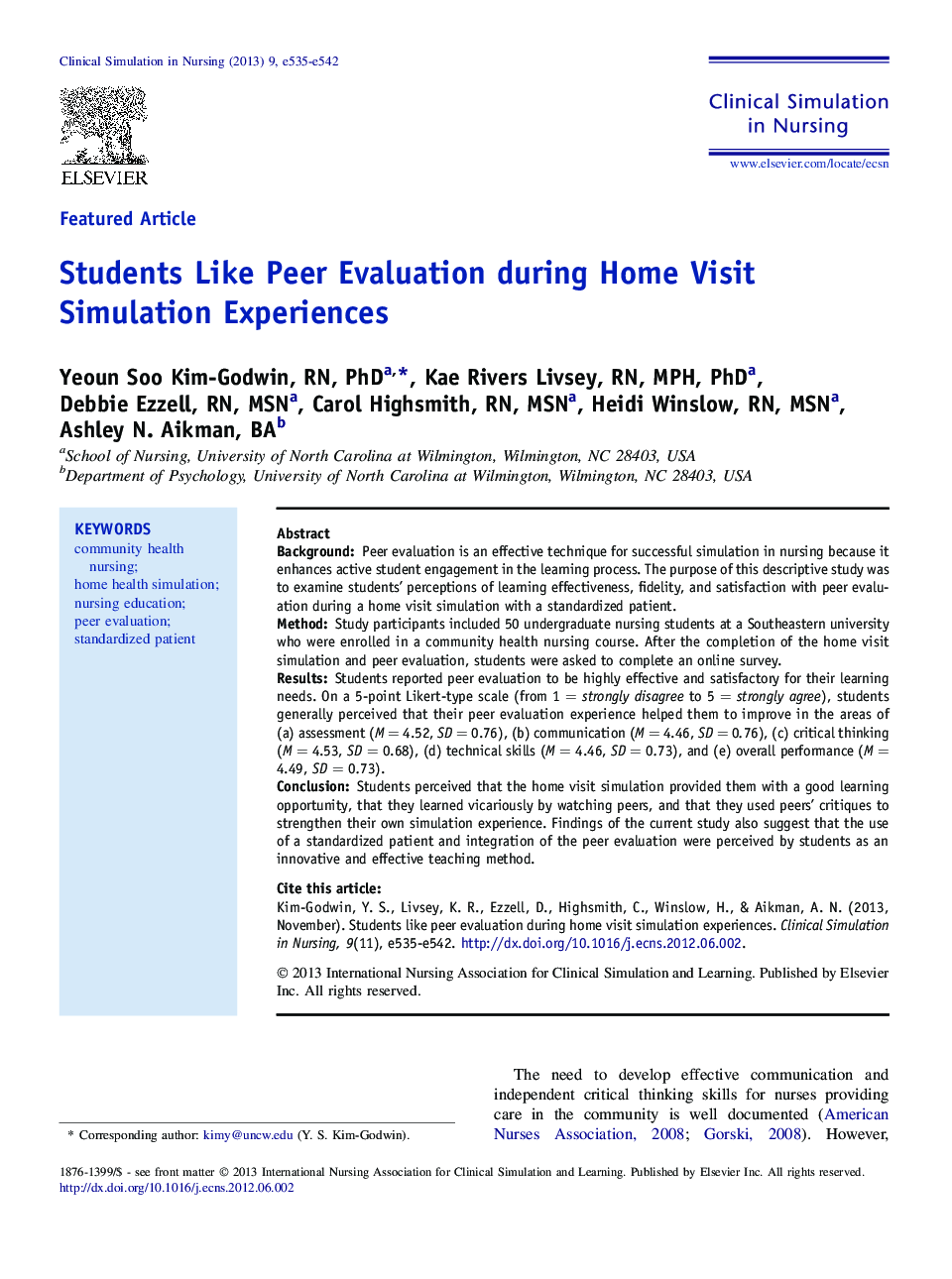| Article ID | Journal | Published Year | Pages | File Type |
|---|---|---|---|---|
| 2646165 | Clinical Simulation in Nursing | 2013 | 8 Pages |
BackgroundPeer evaluation is an effective technique for successful simulation in nursing because it enhances active student engagement in the learning process. The purpose of this descriptive study was to examine students' perceptions of learning effectiveness, fidelity, and satisfaction with peer evaluation during a home visit simulation with a standardized patient.MethodStudy participants included 50 undergraduate nursing students at a Southeastern university who were enrolled in a community health nursing course. After the completion of the home visit simulation and peer evaluation, students were asked to complete an online survey.ResultsStudents reported peer evaluation to be highly effective and satisfactory for their learning needs. On a 5-point Likert-type scale (from 1 = strongly disagree to 5 = strongly agree), students generally perceived that their peer evaluation experience helped them to improve in the areas of (a) assessment (M = 4.52, SD = 0.76), (b) communication (M = 4.46, SD = 0.76), (c) critical thinking (M = 4.53, SD = 0.68), (d) technical skills (M = 4.46, SD = 0.73), and (e) overall performance (M = 4.49, SD = 0.73).ConclusionStudents perceived that the home visit simulation provided them with a good learning opportunity, that they learned vicariously by watching peers, and that they used peers' critiques to strengthen their own simulation experience. Findings of the current study also suggest that the use of a standardized patient and integration of the peer evaluation were perceived by students as an innovative and effective teaching method.
